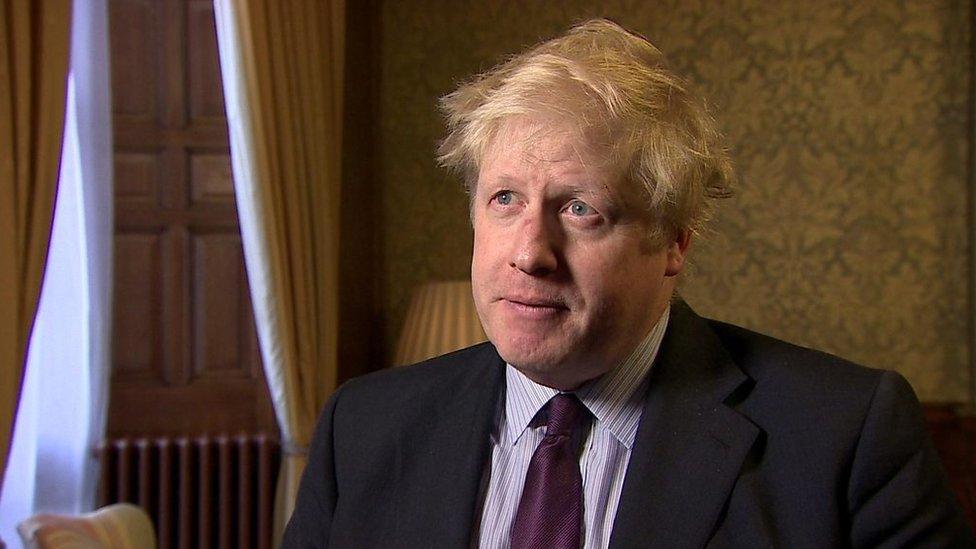Russian spy: Embassy warns UK against 'punitive' measures
- Published
Neil Basu, the UK's head of counter-terrorism, made a fresh appeal for witnesses
The UK's threat of "punitive" measures against Russia over the poisoning of a former spy and his daughter will "meet with a response", Russia has said.
Russia's UK embassy posted a series of tweets, external as a deadline looms for it to explain how a Russian-made nerve agent was used in Salisbury.
It said there would be no reply to the "ultimatum" until it was given access to samples of the substance.
No 10 said Donald Trump has told the PM the "US was with the UK all the way".
In a telephone conversation, the US president agreed with Theresa May that the Russian government "must provide unambiguous answers as to how this nerve agent came to be used" against Sergei Skripal, 66, and his daughter Yulia, 33, on 4 March. Downing Street added.
The PM has said it is "highly likely" Russia was involved in the poisoning and the UK must "stand ready" to take action.
She said details would be set out in the Commons on Wednesday should there be no "credible" explanation by midnight on Tuesday from Moscow.
Donald Trump speaking ahead of his call with Theresa May
No 10 said Mrs May also spoke on the phone to France's President Emmanuel Macron and German Chancellor Angela Merkel, who both expressed "solidarity" with the UK 's position.
Foreign Secretary Boris Johnson said if the attack was shown to be a "direct act" by the Russian state it would be a "clear violation of the chemical weapons convention, a breach of international law and a threat to those who abide by the rules-based international order".
The Foreign Office said the UK would brief a session of the North Atlantic Council, Nato's political decision-making body, on Wednesday.
In its defiant tweets, external, the Russian embassy said "any threat to take 'punitive' measures against Russia will meet with a response. The British side should be aware of that."
It said the British ambassador in Moscow had been summoned to the foreign ministry and told the UK's actions were a "clear provocation" and Russia was not involved in the poisoning.
And it added that the international Chemical Weapons Convention stipulates a joint investigation should take place into such incidents, "for which Moscow is ready".
Vladimir Putin is challenged by the BBC over the Skripal poisoning
Earlier on Tuesday, giving an update in the attempted murder investigation, police said former double agent Mr Skripal and his daughter remain critically ill in hospital after being found slumped on a park bench in the centre of Salisbury.
Det Sgt Nick Bailey, who fell ill responding to the incident, is in a serious but stable condition.
Speaking outside New Scotland Yard, Assistant Commissioner Neil Basu said 35 other people had been seen in hospital, of whom 34 had been assessed and discharged, while the condition of one person is being monitored as an outpatient.
Mr Basu also revealed that Miss Skripal had flown into Heathrow Airport from Russia on Saturday, 3 March.
And he appealed for witnesses who saw the pair in her father's red BMW car - registration plate HD09 WAO - between 13:00 and 13.45 GMT on the day of the poisoning.
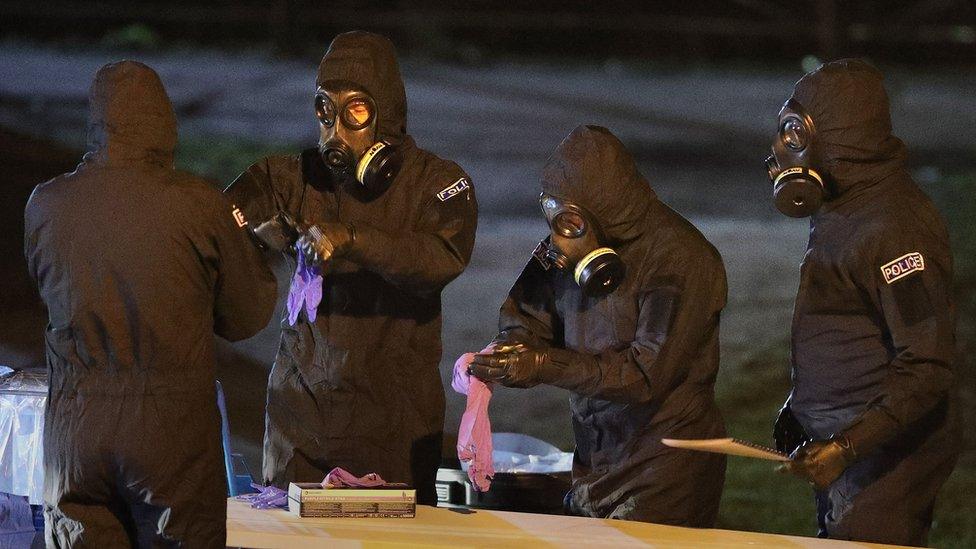
Police continued to work on Tuesday evening near to where the Skripals were found collapsed
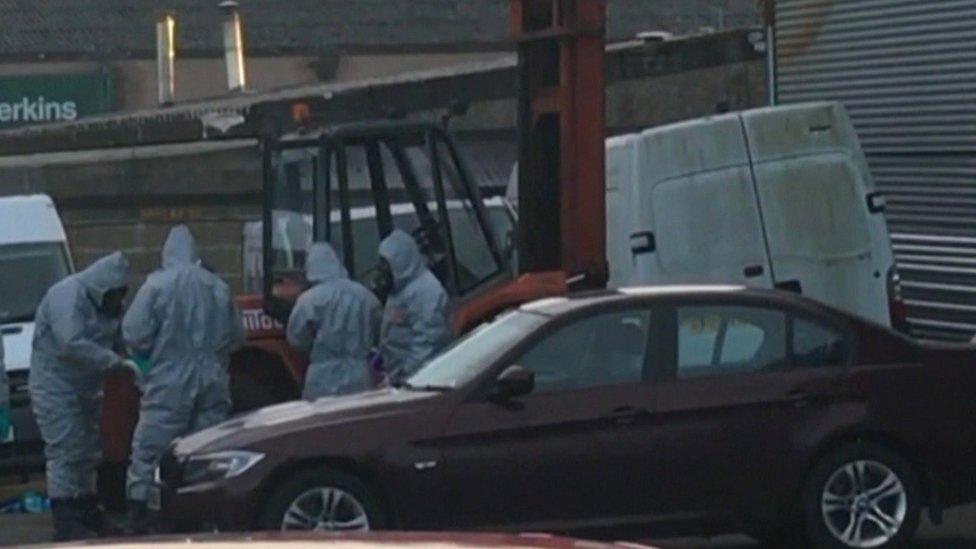
Officers have appealed for information on Sergei Skripal's BMW car
The car was left in Sainsbury's upper level car park in the Maltings shopping area before the Skripals went to the Bishops Mill Pub and then the restaurant Zizzi.
Mr Basu said the police investigation would take "many weeks", with the "prime focus" being how the poison was administered.
However, he said detectives were "not declaring a person of interest or suspect at this time".
Police confirmed that Mr Skripal - who came to the UK in 2010 as part of a "spy swap" after he had been convicted by Russia of passing information to MI6 - was a British citizen.
Boris Johnson: "We are giving Russia until midnight to explain"
In other developments:
The Football Association says it has made no change to plans for England's presence at this year's World Cup in Russia despite calls to consider a boycott following the poisoning of the Skripals.
Home Secretary Amber Rudd announced that MI5 and police are to look into claims that as many as 14 deaths on UK soil may be linked to Russia.
Counter-terror police are leading an investigation into the "unexplained" death of a man believed to be Russian businessman Nikolai Glushkov - but officers say there was no evidence linking the death to the incidents in Salisbury.
Ofcom says it will consider, external whether Kremlin-funded channel RT should broadcast in the UK if Russian involvement is proven in the Salisbury attack. Moscow has threatened to expel British media outlets if it is stripped of its licence, while RT said its output "continues to adhere to all standards" and Ofcom was "conflating its role" as a broadcasting regulator.
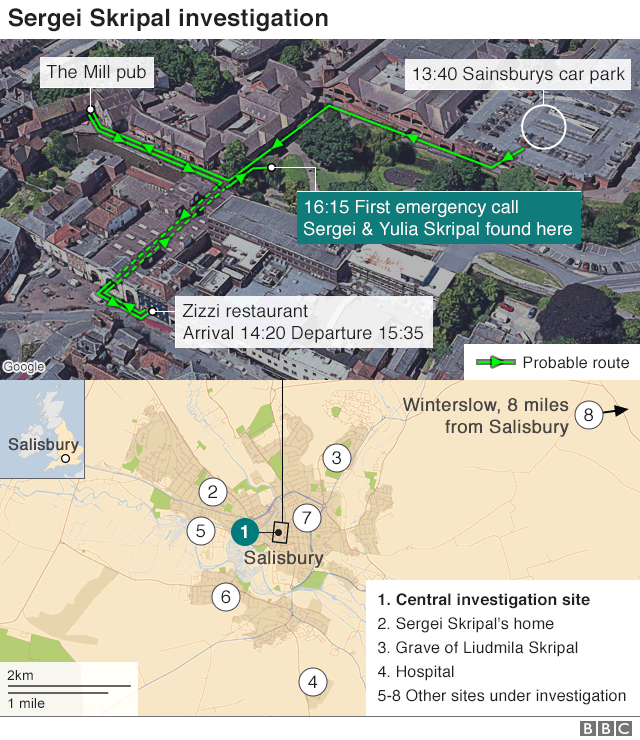

How could the UK retaliate against Russia?
Britain could expel Russian diplomats, as it did after the poisoning of former Russian Federal Security Service operative Alexander Litvinenko in 2006 with radioactive polonium.
But many argue that this, and the other measures that were taken after that killing - including visa restrictions on Russian officials - did not go far enough.
So what else could the UK do?
Other possible actions could include:
Freezing financial assets
Bans on visas
Boycotting the Fifa World Cup in Russia later this year
Taking Russian broadcasters such as RT (formerly Russia Today) off the air in the UK


- Published12 March 2018
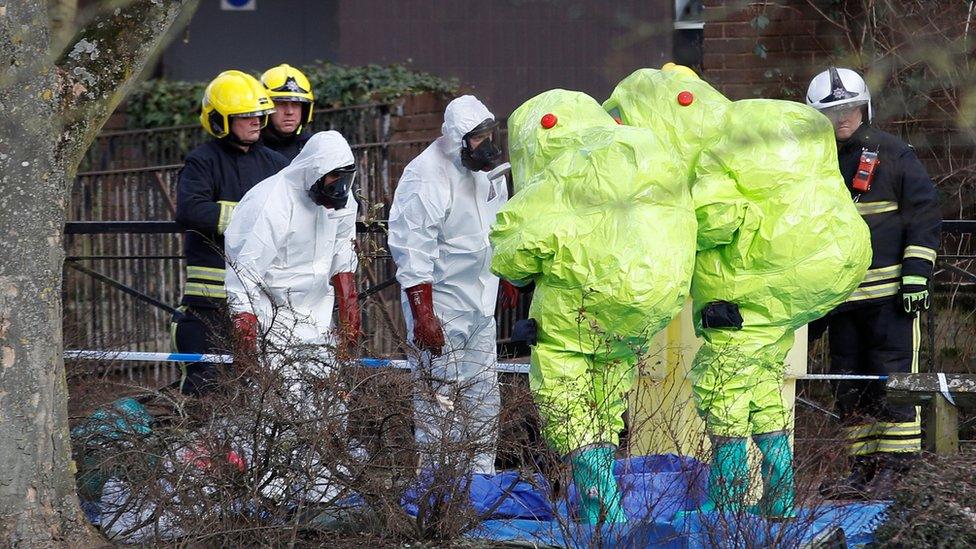
- Published8 October 2018
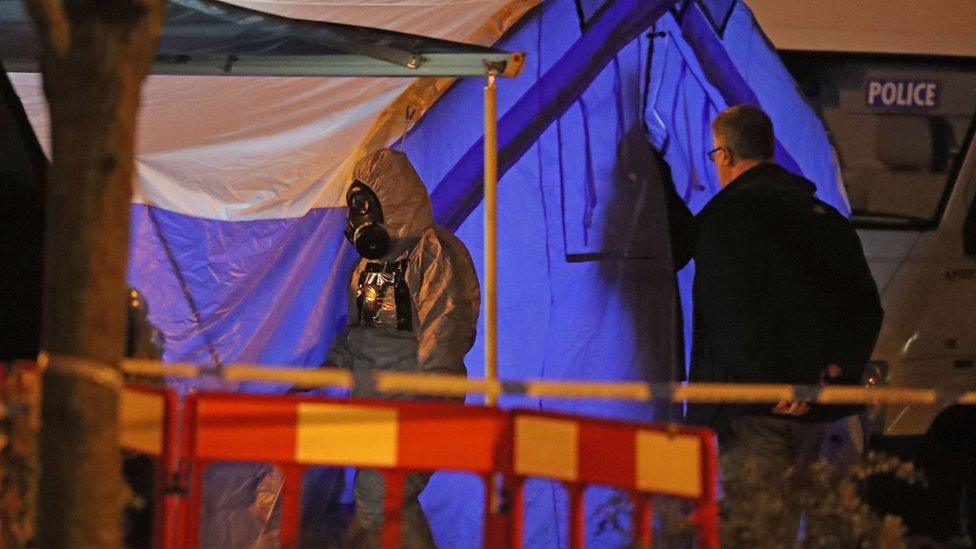
- Published10 March 2018
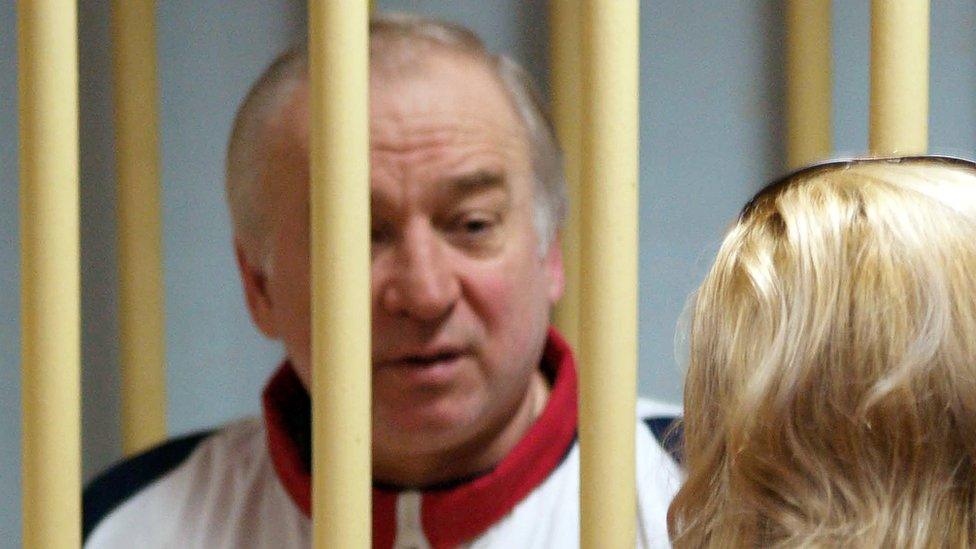
- Published10 March 2018
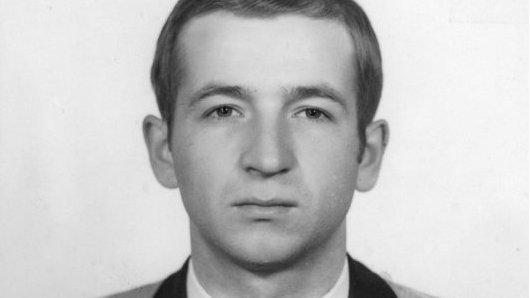
- Published13 March 2018
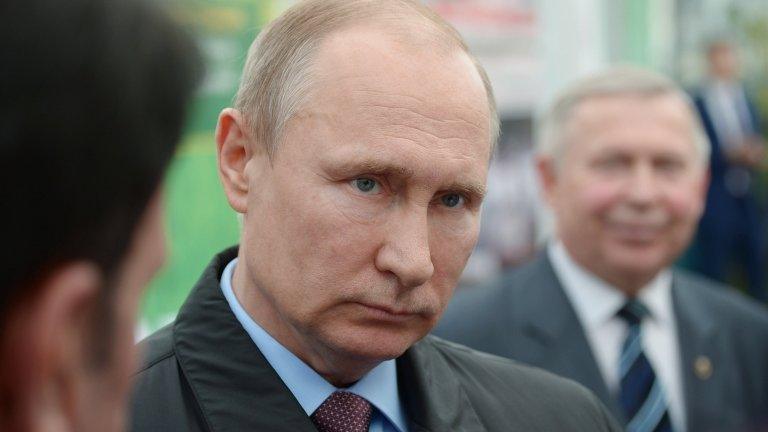
- Published13 March 2018
